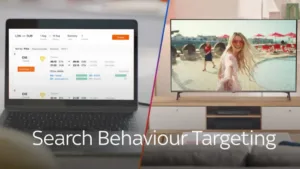Earlier today in the Queen’s Speech the Government said it intended to introduce a 9 pm watershed on HFSS (products high in fat, salt and sugar) advertising on TV and a total ban online through the Health and Care Bill. This comes despite Boris Johnson’s previous opposition to banning advertising for such products and his comments about being against the ‘nanny state’ and ‘sin taxes’.
We asked Jon Mew of the IAB and Stephen Woodford of the Advertising Association for their thoughts.
John Mew, CEO of the IAB UK gave the following statement:
“Following confirmation in the Queen’s Speech that the Government will introduce a total ban on online advertising for products high in fat, salt and sugar (HFSS) by the end of 2022, we are urgently seeking clarification from DCMS to understand the situation for our members and the wider industry. At IAB UK, we strongly disagree with the ban and the Government’s rationale for it. We recognise that childhood obesity is a significant challenge that must be addressed, and our view remains that an online ad ban is not the solution to this complex problem. The archaic action the Government is taking disregards prevailing evidence relating to the causes of obesity and ignores smarter, digital-led solutions put forward by advertising’s regulatory body that could further limit children’s exposure to digital advertising in a proportionate and targeted way.
Policy interventions as serious and sweeping as an outright ban should be rooted in robust evidence. The Government’s online HFSS ad ban is not. In fact, the Government’s own evidence shows that an online ad ban will cut children’s calorie intake by a minuscule 2.84 calories per child, per day. What’s more, while the UK already has some of the strictest rules in place around online HFSS advertising and children’s exposure to HFSS ads online has fallen dramatically as a result, obesity rates have continued to rise. This fundamentally undermines the assumed link between ad exposure and childhood obesity – a fact that the Government has chosen to ignore in favour of blunt and disproportionate action. The fact that current measures are working in reducing children’s already limited exposure to HFSS ads online, according to latest data from the Advertising Standards Authority, further weakens the case for implementing a ban.
As a matter of urgency, the government needs to respond to its two consultations and provide detail to the industry to address the lack of certainty in the proposals, including the scope of the ban, and the regulatory responsibility and framework. The Government has so far failed to make the case for a total online ban, and we urge it to reconsider the smarter, evidence-led solutions that can be delivered more quickly and effectively by the existing regulatory system.”
Advertising Association Chief Executive Stephen Woodford has made the following comment:
“We are dismayed at the Government’s decision, announced in today’s Queen’s Speech, that it is going to press ahead with a 9 pm watershed and a total online ban on HFSS advertising. The Government’s own evidence shows that such measures will be ineffective in tackling obesity. The country needs balanced, consistent and well-evidenced policy interventions that will make a positive difference. The 9 pm watershed and online ban will not reduce obesity levels, but will damage business and innovation and put jobs at risk.”









